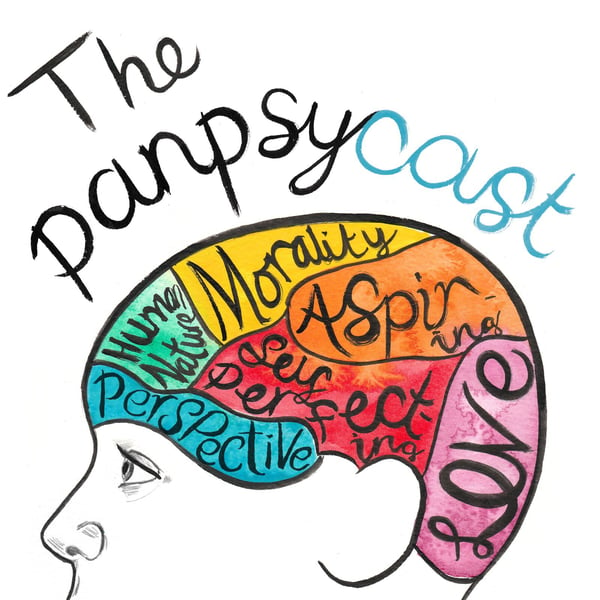Episode 146, The Philosophy of Comedy (Part I - The Nature of Humour)
The Panpsycast Philosophy Podcast
Jack Symes | Andrew Horton, Oliver Marley, and Rose de Castellane
4.8 • 604 Ratings
🗓️ 10 August 2025
⏱️ 54 minutes
🧾️ Download transcript
Summary
In 2021, Netflix released His Dark Material, a Christmas stand-up special by Irish–British comedian Jimmy Carr. The show sparked international outrage. Toward the end of the set, Carr delivered what he called a ‘career ender’ – a joke about the Holocaust, in which he described the Nazis’ murder of thousands of ‘Gypsies’ as a ‘positive’.
The Holocaust Memorial Day Trust, the Auschwitz Memorial, and the UK government condemned the joke as ‘appalling’, ‘abhorrent’, and ‘racist’; Carr, critics said, was trading on the ‘last acceptable form of racism’.
Comedy touches every part of our lives. We tell jokes at the pub, around the dinner table, and by the office coffee machine. We all know someone who makes us laugh – and someone who seems to take things too far. But is there a line when it comes to humour? And if there is, who gets to draw it? Should we suspend our moral judgements when the lights go down and the curtain goes up? Or do jokes, like most speech acts, carry moral weight?
To answer these questions, we need to understand the nature of comedy itself – what exactly it is we’re responding to when we laugh. Humour might be a release of nervous tension, a playful disruption of expectations, or – more troublingly, if it applies to Carr’s joke – a means of asserting social superiority. No doubt, comedy has the power to shape our culture and perceptions. But, as we’ll find out, it also tells us something about who we are, who we ought to be, and the things we value most.
Links
Abrahams, Daniel – Winning Over the Audience: Trust and Humor in Stand‐Up Comedy (paper)
Anderson, Luvell – Roasting Ethics (paper)
Bergson, Henri – Laughter: An Essay on the Meaning of the Comic (book)
Carroll, Noël – Ethics and Comic Amusement (paper)
Carroll, Noël – Humour: A Very Short Introduction (book)
Carroll, Noël – I’m Only Kidding: On Racist and Ethnic Jokes (paper)
Carroll, Noël – Cruelty and Humour (paper)
Critchley, Simon – On Humour (book)
Deen, Phillip – What Could It Mean to Say That Today’s Stand‐Up Audiences Are Too Sensitive? (paper)
Gimbel, Steven (ed.) – The Philosophy of Comedy (book)
Hick, Darren Hudson – Why Can’t You Take a Joke? The Several Moral Dimensions of Pilfering a Ha‐Ha (paper)
Morreall, John – Comic Relief: A Comprehensive Philosophy of Humor (book)
Morreall, John – Philosophy of Laughter and Humor (book)
Morreall, John – Stanford Encyclopedia of Philosophy: Philosophy of Humor (article)
Smuts, Aaron – Internet Encyclopedia of Philosophy: Comedy (article)
Transcript
Click on a timestamp to play from that location
| 0:00.0 | In 2021, Netflix released His Dark Material, a Christmas stand-up special by Irish-British comedian Jimmy Carr. |
| 0:15.0 | The show sparked international outrage. |
| 0:18.0 | Toward the end of the set, Carr delivered what he called a career |
| 0:21.2 | ender, a joke about the Holocaust, in which he described the Nazis' murder of thousands of |
| 0:25.9 | gypsies as positive. The Holocaust Memorial Day Trust, the Auschwitz Memorial and the UK |
| 0:31.8 | government condemned the joke as appalling, abhorrent and racist. Carr, critic said, was trading on the last acceptable form of |
| 0:40.0 | racism. Comedy touches every part of our lives. We tell jokes at the pub, around the dinner table, |
| 0:45.9 | and by the office coffee machine. We all know someone who makes us laugh, and someone who seems to |
| 0:50.8 | take things too far. But is there a line when it comes to humour? And if there is, |
| 0:55.5 | who gets to draw it? Should we suspend our moral judgments when the lights go down and the |
| 1:00.4 | curtain goes up? Or do jokes, like most speech acts, carry moral weight? To answer these questions, |
| 1:06.1 | we need to understand the nature of comedy itself. What exactly it is we're responding to when we laugh. |
| 1:12.4 | Humor might be a release of nervous tension, a playful disruption of expectations, or more |
| 1:18.0 | troublingly, if it applies to Carr's joke, a means of asserting social superiority. No doubt, |
| 1:24.1 | comedy has the power to shape our culture and perceptions. But as we'll find out, it also tells us something about who we are, who we ought to be, and the things we value most. |
| 1:54.1 | Hello. Hello and welcome to episode 146 of the Panseyecast. |
| 2:02.1 | Walking into a bar, I'm Jack Seim's, and I'm delighted to be joined once again by The Genie granting us three wishes. It's Mr. Olly Marley. |
| 2:04.6 | Hello. |
| 2:05.6 | Yo Mama, it's Lucy James. |
| 2:07.6 | Hello. |
| 2:08.6 | Why the chicken cross the road? It's Jonathan Hawkins. |
| 2:11.6 | Hello. |
... |
Transcript will be available on the free plan in 10 days. Upgrade to see the full transcript now.
Disclaimer: The podcast and artwork embedded on this page are from Jack Symes | Andrew Horton, Oliver Marley, and Rose de Castellane, and are the property of its owner and not affiliated with or endorsed by Tapesearch.
Generated transcripts are the property of Jack Symes | Andrew Horton, Oliver Marley, and Rose de Castellane and are distributed freely under the Fair Use doctrine. Transcripts generated by Tapesearch are not guaranteed to be accurate.
Copyright © Tapesearch 2025.

